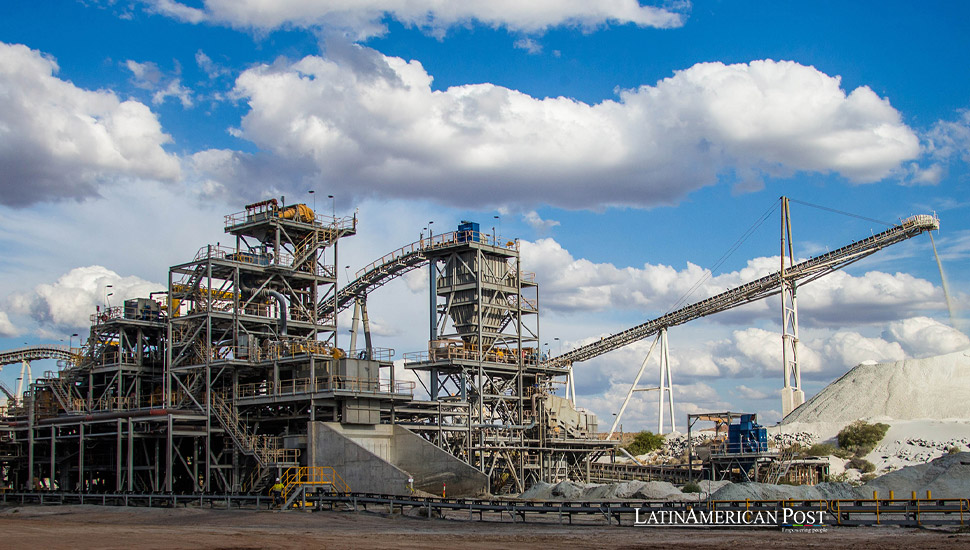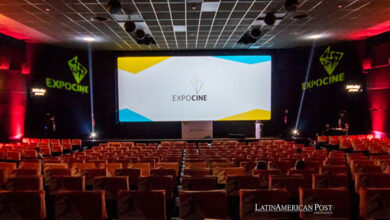Pilbara Minerals’ $372M Move for Latin Resources Shakes Market

Pilbara Minerals’ $372 million acquisition of Latin Resources has sparked interest in Brazil’s growing lithium sector. As companies vie for control of high-quality lithium projects, a Stockhead analysis foresees a wave of mergers and acquisitions shortly. This feature is based on this Stockhead report.
A Power Play in Brazil
Pilbara Minerals’ acquisition of Latin Resources for $372 million has stirred the lithium industry. The deal, announced last month, gives Pilbara control of the Salinas lithium project in Brazil, one of the country’s most promising lithium assets. The Salinas project has a resource estimate of 77.7 million tonnes with a lithium oxide grade of 1.24%, positioning it as a future powerhouse in the global lithium market.
According to a preliminary economic assessment, the project has the potential to produce nearly 500,000 tonnes of spodumene concentrate annually for an estimated 11 years. With projected cash costs of $567 per tonne, the Salinas project stands out as a low-cost, high-reward venture. Pilbara’s management is confident that the project could become one of the world’s most extensive rock-based lithium operations, opening up new markets in Europe and North America.
As the acquisition is expected to close by December, many industry experts focus on Brazil’s role as a critical player in the lithium market. With this deal, Pilbara is expanding its global reach and strengthening its position in a fast-growing industry.
The acquisition of Latin Resources marks a significant step in Pilbara’s expansion strategy. Already one of the world’s leading lithium producers, Pilbara is leveraging its expertise to tap into Brazil’s rich lithium reserves. The Salinas project, located in the lithium-rich Minas Gerais state, offers the company an opportunity to diversify its operations and gain a foothold in South America, a region with increasing significance in the global lithium supply chain.
Despite the current softness in lithium prices, Pilbara’s management views this acquisition as a strategic investment in the future. With electric vehicle (EV) adoption accelerating and renewable energy storage demands increasing, the long-term outlook for lithium remains robust. By acquiring Salinas, Pilbara aims to capitalize on future lithium market recoveries and secure a place in the global clean energy transition.
The Salinas project’s low operating costs and strategic location near growing EV markets in Europe and North America make it an attractive acquisition. An optimized feasibility study is in the works, and Pilbara is expected to refine the project’s economics and potentially extend its operational life.
Brazil’s Lithium Boom: A Growing Global Player
Thanks to its vast deposits and favorable mining policies, the stockhead points out that Brazil is quickly becoming a significant player in the global lithium market. The acquisition of Latin Resources’ Salinas project is part of a more important trend in the country’s growing lithium sector. Sigma Lithium, a key competitor, marked its first anniversary of lithium shipments this year from its Grota do Cirilo project. Sigma’s low operating costs of $424 per tonne underscore the profitability potential in Brazil’s lithium mining industry.
Other notable lithium projects in Brazil include Lithium Ionic’s operations in Salinas and Bandeira, Atlas Lithium’s Minas Gerais projects, and Solis Minerals’ Borborema. While these projects have shown promise, some Australian lithium explorers in Brazil have scaled back due to market conditions, temporarily halting spending on their ventures.
Despite these challenges, Brazil’s lithium resources have attracted increasing attention from global investors. The country’s proximity to major EV markets and its reputation as a stable mining jurisdiction make it an appealing destination for companies seeking to secure a steady lithium supply.
Challenges and Opportunities in the Lithium Market
While the global demand for lithium is expected to surge in the coming years, current market conditions have created challenges and opportunities for companies operating in the sector. Lower lithium prices and capital-raising difficulties have made it challenging for many developers to expand. However, for companies with financial strength, this environment presents an opportunity to acquire valuable assets at discounted prices.
Analyst Greg Jones noted that the current landscape is favorable for mergers and acquisitions (M&A) from a buyer’s perspective. With valuations low and the difficulty of raising capital high, well-positioned companies can take advantage of the situation to secure high-quality projects with long-term growth potential. However, many potential acquirers are hesitant to act due to the weak market, and some larger lithium producers have paused expansion projects as they wait for better conditions.
In addition to traditional mining companies, private equity firms and strategic investors, including automakers and battery manufacturers, could become significant players in the next wave of acquisitions. As lithium needs to power electric vehicles and renewable energy solutions grow, securing control of lithium resources will be critical for staying competitive in the clean energy race.
What’s Next? Mergers and Acquisitions on the Horizon
Pilbara’s acquisition of Latin Resources has raised the possibility of more mergers and acquisitions in the lithium industry. As Brazil’s lithium sector grows, other companies will likely follow suit, seeking to gain a foothold in one of the world’s most promising lithium markets.
Potential buyers will be most attracted to projects that offer large-scale, long-life potential with low capital intensity and operating costs. Companies that can provide access to infrastructure-defined permitting processes and strong community support will likely become acquisition targets as the market evolves.
While many of the larger lithium producers have paused M&A activity due to the current market downturn, this could change as conditions improve. Private equity, joint ventures, and strategic partnerships may also become more common as companies seek to share risks and costs associated with developing large-scale lithium projects.
Government involvement could also shape the future of the lithium market. Investment from public entities could encourage the development of new projects, especially in regions like Brazil, where lithium has the potential to drive significant economic growth.
Pilbara Minerals’ $372 million acquisition of Latin Resources signals a new chapter in Brazil’s rapidly growing lithium sector. Pilbara’s move highlights the country’s increasing importance in the global lithium supply chain, with the Salinas project poised to become one of the world’s most extensive lithium operations. As demand for lithium continues to grow, driven by electric vehicles and renewable energy storage, Brazil’s lithium resources are attracting more attention from global investors.
Also read: Ripple Expands Into Brazil’s Fintech Revolution
While market conditions remain challenging, Pilbara’s acquisition demonstrates confidence in the lithium industry’s long-term prospects. As other companies watch closely, the next wave of mergers and acquisitions could reshape the landscape, with Brazil playing a central role in the future of clean energy.





